|
On the sept-place (seven-seat station wagon) we crammed into for the ride from Dakar to Saint-Louis, three women sat in front of us wearing traditional wraps of fine printed fabrics in yellow and pink, with headscarves that they kept tidying in the wind. As the car rumbled to a start, they turned around and plopped clementine oranges in our laps. They also passed back butter cookies to share. It was a moment of kindness that softened our pokey seats. I offered the women our chocolate wafer cookies in return, and they accepted. Later, when a young boy came to our window with his hand held out, I gave him another orange that I had brought with me. Because the women gave me a clementine, I had an orange to give to the boy. It was a simple equation of generosity that makes being human seem so straightforward.
It’s the sum of these little human exchanges that I think makes public transportation possible in Senegal. The sept-place really only have room for six adults, but are sometimes filled with eight or nine. The Mercedes taxis we take have no resemblance to the upper-class cars driven in the U.S. They’re stripped to their metal bones, with no working instruments at all in the dash, doors that can only be opened from one side, and windows that won’t open. Some must be pushed to start—but whoever is standing nearby always seems to lend a hand. The larger mini-buses that are packed with 20 to 30 adults, sitting thigh over thigh, fill with heat and dust as they teeter-totter along the pot-holed roads. But perhaps the best part of traveling in Senegal has been bouncing along in these rattletraps. Though tiring and challenging, traveling in the local buses and taxis shows me how the Senegalese people relate to each other and to us, the dust-covered foreigners who have messy hair and speak bad French. For example, it’s thanks to two college math teachers, Omar Diagne and Mbaye Ndao, whom we met in the dark back of a bread delivery truck/taxi, that we easily negotiated the changes between the six different unmarked taxis, buses, and ferries that it took to get between Palmarin and Foundiougne in the country’s Sine-Saloum Delta. Another man named Etienne Dogue, who works for Heifer International in Senegal, was traveling home for Christmas to a village nearby Foundiougne with his wife Fatou and boisterous baby boy, Laoo. Etienne showed us the way to our hotel and invited us to his village on our next visit. Many other people have pointed us to the right vehicle, made room for us and our bags, told us where to get off, and wished us a “bonne continuation” of our journey. As we’re left on the side of the road, wondering what to do next, we watch our ride sputter away in a haze of exhaust, fueled by humility, humor, and so much kindness. It’s usually only a minute or two before someone asks us where we’re going and tells us how we can get there.
5 Comments
From Saint-Louis, a crumbling French colonial outpost that was the capital of Senegal until 1957, we took a day-trip north to the Parc National des Oiseaux du Djoudj. Birds come by the millions each winter to nest and feast in the park's wetlands along the Senegal river. Our Senegalese guide, Djibi, helped us identify some of the 400-plus bird species that have been spotted here. A sign above the dock where we hired a pirogue (a small motorized boat) said, “Bienvenue l’Embarcadère du Djoudj, ou le Pelican est Roi.” Welcome to the Pier of Djoudj, where the Pelican is King.
Our pirogue driver cruised us along a wide river through the pelicans’ 40,000-acre kingdom. An alert kingfisher with crisp black and white wings and a dagger of a beak stood guard near the dock. A few white pelicans floated nearby, looking confident with their wings lifted just a little bit, like swans. Another flock zoomed above us in an elegant arrow. Further along, a group of white-breasted cormorants, in charcoal-colored coats with creamy cravats, rested in a dead tree. And in the water, hundreds of cormorants swam with just their long necks sticking above the surface. They would dive down together in a wave and a few would come back up holding a wriggling meal. We also saw anhingas with serpentine necks, bright green bee-eaters, and osprey soaring high above. A fish eagle in a white hood with a brown body, similar to a bald eagle, overlooked it all. As we picked up speed, I looked back and watched as about a dozen terns flew right behind us, fishing for minnows churned up in our wake. After about a half hour, we reached the pelicans’ palace. It was an artificial island, created by park employees as a predator-free sanctuary for the birds. On it sat thousands of pelicans, wing to wing, a squawking sea of giant beaks and white feathers. The smell was overwhelming. Our guide, Djibi, told us that the birds were nesting. They arrive around November and leave around April with hundreds of offspring. The pirogue driver turned off the engine, and we sat and listened to this royal family's raucous music. |
Archives
July 2012
Categories
All
|
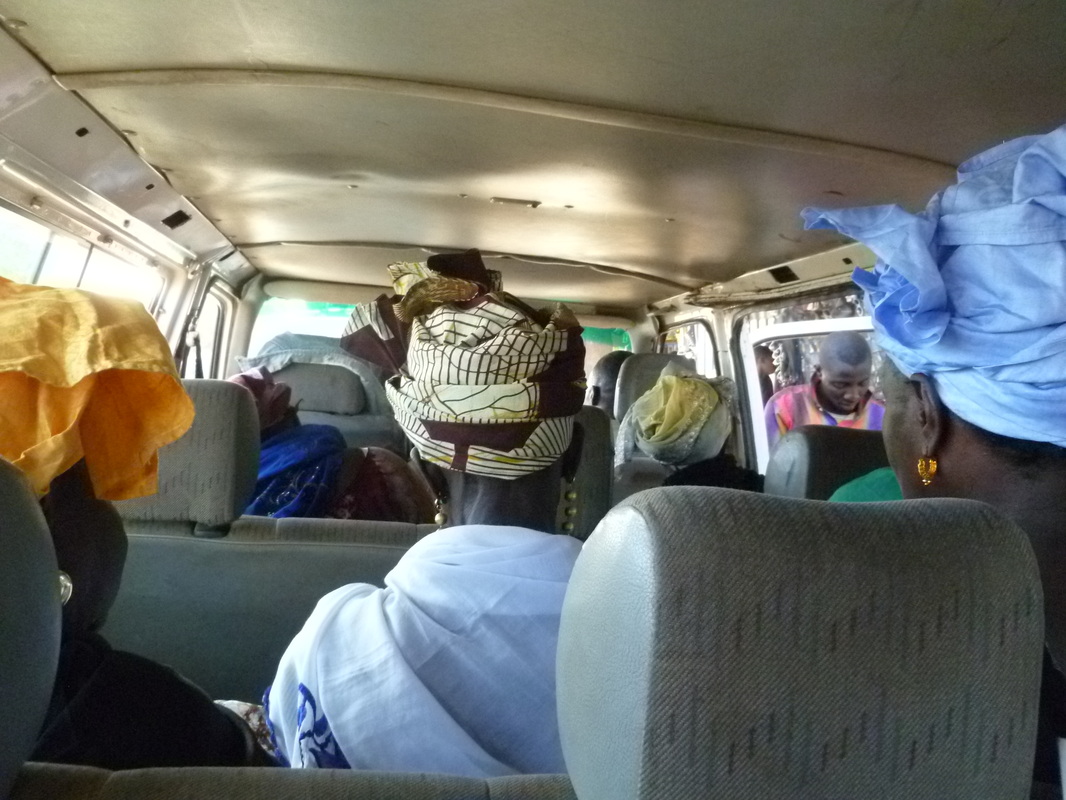
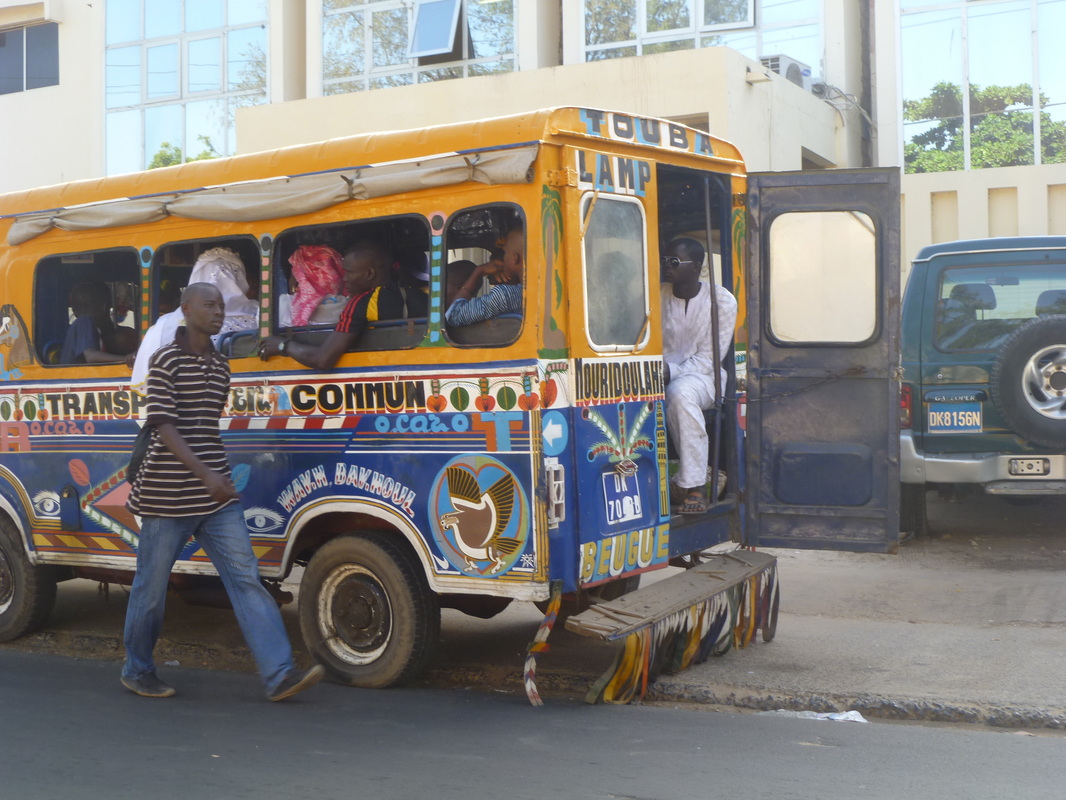
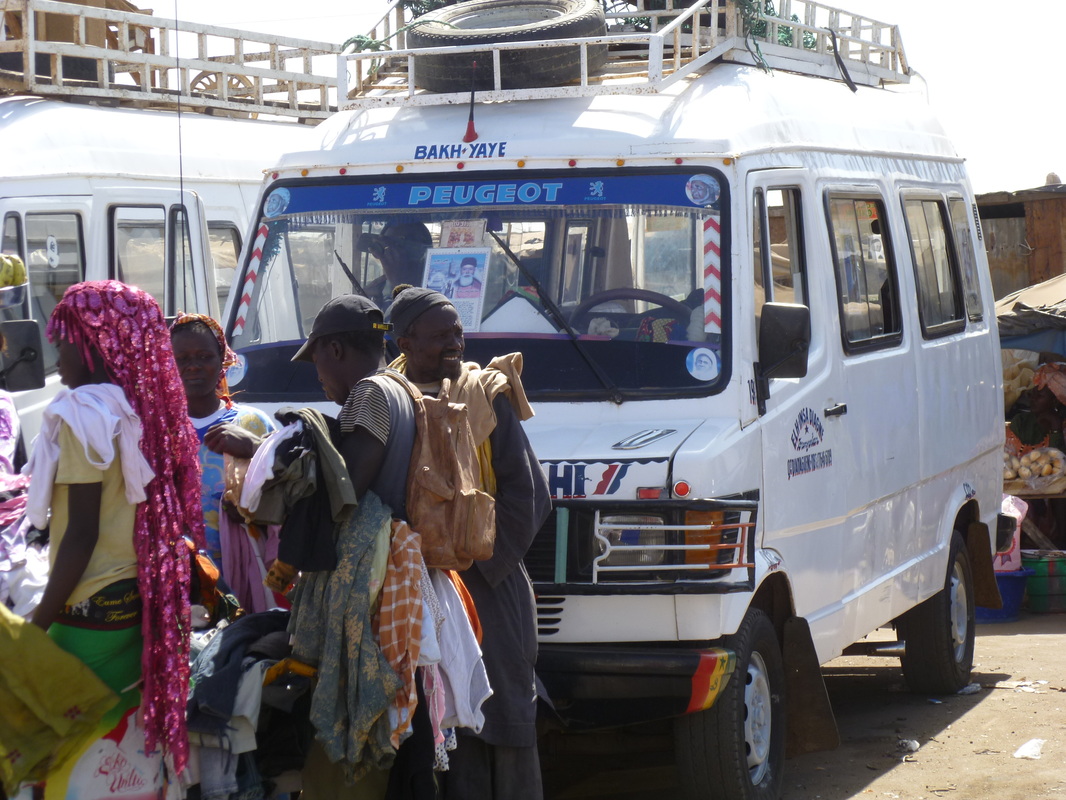
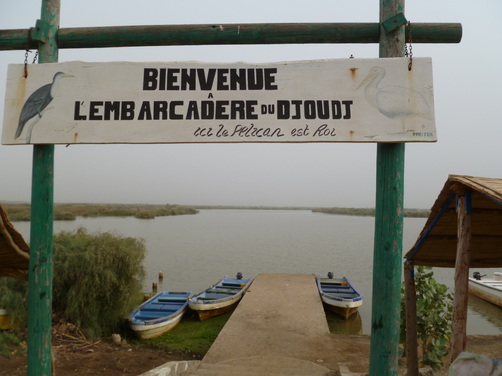
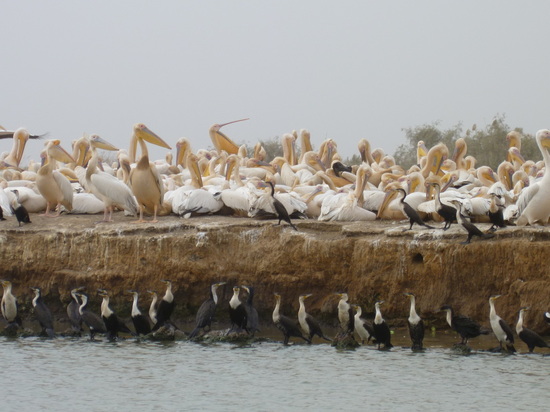
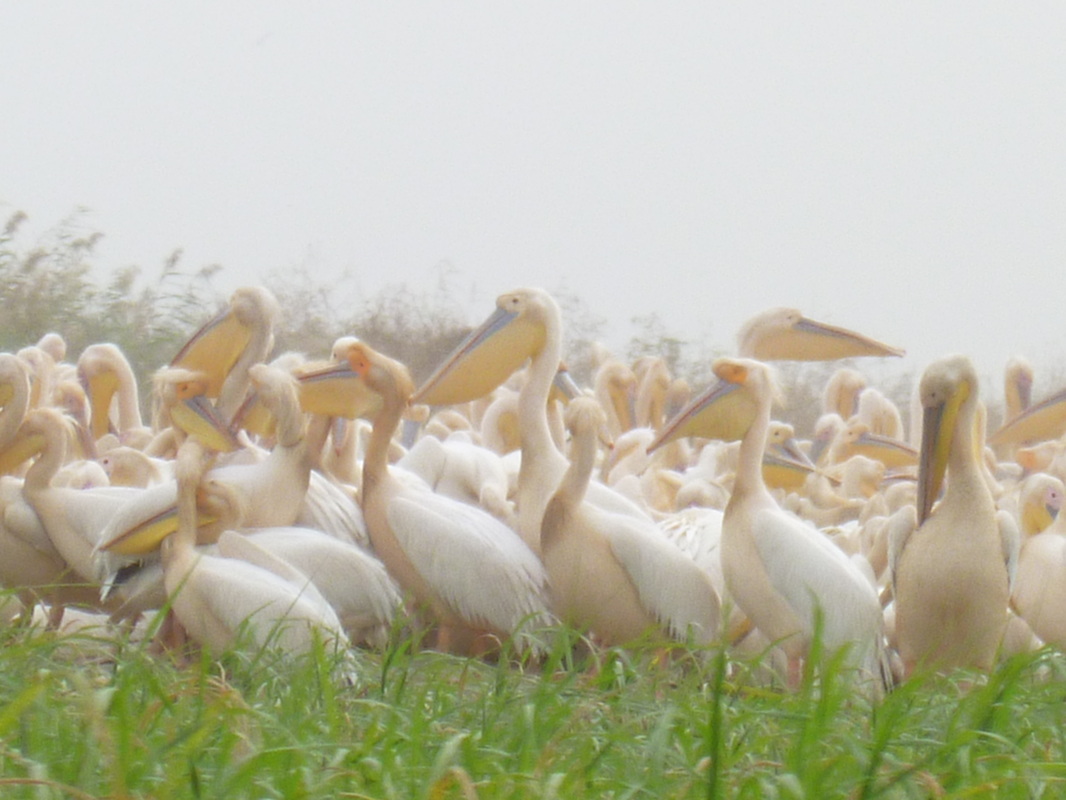
 RSS Feed
RSS Feed